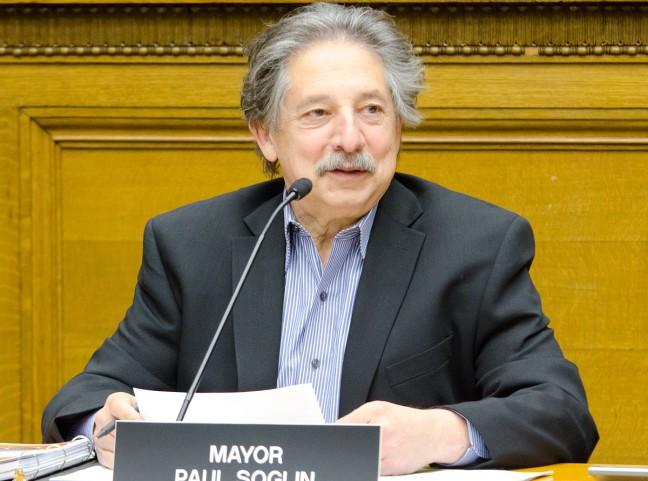The Madison Common Council debated and passed Mayor Paul Soglin’s operating and capital budgets Tuesday night with more than 35 amendments, in the process approving the largest single capital budget in the history of Madison. The City of Madison passes two budgets annually: a capital budget and an operating budget. Overall, the capital budget, while larger than ever before, is full of the infrastructure improvements that many people employed by the city work very hard to analyze. Many more people not employed by the city enjoy the end result of the budget but don’t care about the process. Discounting these projects that encompass the bulk of the budget, there are a number of noteworthy wins and misses from the mayor and council that warrant discussion.
First, I want to highlight a program that has received a lot of national attention recently: the use of body cameras on police officers. Ald. Scott Resnick, District 8, who is running for mayor against current Mayor Soglin, proposed an amendment which would require police officers in a single Madison district to wear body cameras in 2015, which would then be expanded across the city after the initial test run. The proposal was ultimately delayed until 2016, allowing Madison Police Department to study the proposal in 2015 and implement it most effectively. While I’m not sold that it takes a whole year for this process, I am encouraged that the council included this amendment in the adopted budget. This is a great stepping stone for transparency and accountability and a win-win situation for the city of Madison, which will be the first city in Wisconsin to adopt body cameras for their police force.
Police body camera initiative postponed at Madison Common Council meeting
Soglin’s $24 million proposal to increase affordable housing for Madison’s low-income and homeless population is another win for the city of Madison. Despite Soglin’s history of disdain for the homeless population and his sudden and miraculous concern for them during an election year, this is a good proposal that will do much for those most in need. Even if his motives are nothing more than election year politicking, Soglin proposed an ambitious plan, and I’m excited to see it in the adopted budget.
However, despite the good things included in the budget, I do have concerns or outright antipathy toward several items, including a $13 million parking lot subsidy for a private developer, Wi-Fi on city buses and the continued underfunding of the Overture Center.
Urban Land Interests is a Madison developer seeking to redevelop the Anchor Bank building on the Capitol Square. Part of the $99 million redevelopment is the addition of more underground parking, which Madison is financing to the tune of $13 million. I love convenient parking as much as the next Madisonian, but $13 million for more parking when the city is raising fees on bus transit, while also stressing the need for non-car transit options, seems like money that could be better spent – especially since a myriad of parking options already exist around the square.
The council adopted a measure to add Wi-Fi to all city buses. While it could be a benefit for those with longer commutes, the vast majority of city residents probably manage just fine with the data plans on their smart phones and don’t need the city to spend $100,000 annually to have a few stops of Wi-Fi. Chalk this up as a good idea but not a real “win” for anyone.
The Overture Center has previously been a sore spot for Soglin, as illustrated by his previous budgets. Since becoming mayor, Soglin has tried to go back on the city’s $2 million annual commitment each and every year. This year, in a fit of reelection posturing, he decided to fund the city’s contribution at $1.75 million instead of his usual evisceration of their allocated amount. This amount is still short of the $2 million annual contribution that was agreed on in 2010 and puts the Overture Center at increased risk of the type of financial crises that have plagued the arts center since its inception. Soglin, the creator of Overture’s predecessor in the 1970s, is certainly a supporter of the arts, but his opposition to funding the Overture Center is just silly.
There are many other important projects and issues in this budget, and I encourage you to read the summaries as they are posted to the city of Madison’s website. Despite Soglin’s election year posturing, this year’s budget was relatively quiet compared to past years’ iterations, which is good for those crafting the budget and those trying to understand it. In just a few short months, we’ll have to start looking at the 2016 budget cycle – potentially with a new mayor.
Adam Johnson ([email protected]) is a graduate student at the La Follette School of Public Affairs.














